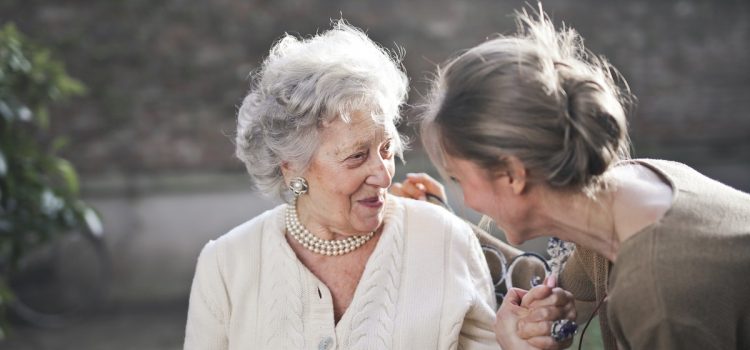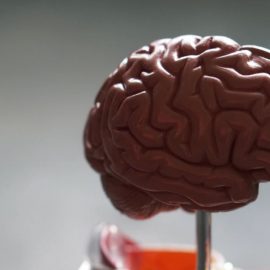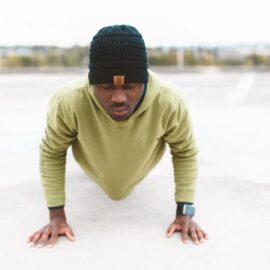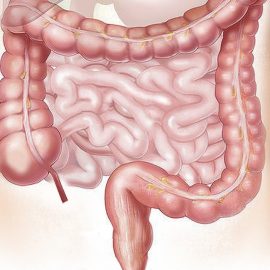

This article gives you a glimpse of what you can learn with Shortform. Shortform has the world’s best guides to 1000+ nonfiction books, plus other resources to help you accelerate your learning.
Want to learn faster and get smarter? Sign up for a free trial here .
Do you want to know how to age well? What lifestyle habits should you adopt to offset the effects of aging on your body and mind?
Aging is an unpleasant yet inevitable part of life. However, people age at vastly different rates depending on their genetic profile and lifestyle habits. While you don’t have control over your genetics, you do have some control over your lifestyle.
With this in mind, here are five not-so-secret tips on how to age well.
1. Move Your Body
Regular exercise helps your body preserve its resources against the negative effects of aging. For example, as neurons wear out in the brain, the neural network thins, and exercise counteracts this loss by supporting neuroplasticity and neurogenesis.
Exercise also lengthens and protects telomeres. Telomeres are small complexes of DNA and proteins at the ends of our chromosomes that get shorter each time a cell divides. When the telomere runs out, the cell stops dividing—leading to many of the problems of old age. Therefore, lengthening telomeres can literally keep our bodies younger for longer.
You don’t even need a gym membership to reap the anti-aging benefits of regular exercise. For example, residents of Blue Zones (the geographic regions where people live the longest) get their exercise not necessarily by going to the gym, but just by staying active. You can easily employ this principle yourself by walking to work, taking the stairs, joining a sports team, and so on.
However, if you want to take full advantage of the anti-aging benefits of exercise, you should exercise in the cold. According to biologist David Sinclair, exercising in low temperatures appears to boost the youthening effects of exercise, most likely due to combining the stress of working out with the stress of being exposed to cold.
TITLE: Spark
AUTHOR: John Ratey
TIME: 15
READS: 48.7
IMG_URL: https://www.shortform.com/blog/wp-content/uploads/2022/06/spark-cover.png
BOOK_SUMMARYURL: spark-summary-john-ratey
AMZN_ID: XYZ
2. Eat Well
A variety of research has uncovered the diet principles that underlie healthy aging. Particularly noteworthy findings come from the longevity studies of residents of the Okinawan town of Ogimi, who live longer and in better health than anybody else on earth.
Francesc Miralles and Hector Garcia, the authors of Ikigai: The Japanese Secret to a Long and Happy Life, interviewed 100 of Ogimi’s oldest residents for advice on how to age well. They came away with the following eating principles that encapsulate the town’s lifestyle of longevity:
Eating Little
Okinawans eat very little overall, averaging only 1,785 calories per day. Not insignificantly, people in all five of the world’s Blue Zones likewise consume fewer calories than people in other parts of the world. Moreover, modern medical science has verified lowered caloric intake as a contributor to improved health.
You can easily follow the Okinawan example of eating less. A particularly Japanese way to practice calorie restriction is to employ Japan’s “80 percent rule” or hara hachi bu, which says you should stop eating when you feel 80 percent full. You can also get the same effects as hara hachi but by practicing intermittent fasting. Just remember that when you practice calorie restriction, you must stay healthy by eating only foods with a high nutritional value.
Eating a Varied Diet
While Okinawans may eat very little, the food they do eat is highly varied. Their diet includes an average of 18 different foods per day. They use the metaphor of a rainbow to determine whether they’ve achieved the desired variety: Is there a multiplicity of colors on the plate?
Okinawans base their diet on grains, primarily white rice. They eat at least five servings of vegetables and fruits daily, filling more than 30 percent of their diet with vegetables. They rarely eat sugar, and when they do, it’s cane sugar. They also eat very little salt—only 7 grams per day.
The Antioxidant Connection
The Okinawan diet is extremely rich in antioxidants. Okinawans eat 15 high-antioxidant foods almost every day, including tofu, miso, tuna, sea kelp, soy sprouts, and sweet potatoes. Antioxidants slow down the oxidation process in your cells by fighting free radicals, molecules that cause cellular oxidation and may contribute to cancer.
For Westerners who can’t get their hands on Japan’s antioxidant-rich foods, there are many other readily available foods that achieve the same effect, such as broccoli and chard, oily fish (such as salmon and sardines), citrus fruits, berries, oats, wheat, olive oil, and red wine.
TITLE: Ikigai
AUTHOR: Héctor García and Francesc Miralles
TIME: 23
READS: 148.4
IMG_URL: https://www.shortform.com/blog/wp-content/uploads/2021/05/ikigai-cover.png
BOOK_SUMMARYURL: ikigai-summary-héctor-garcía-and-francesc-miralles
AMZN_ID: XYZ
3. Exercise Your Brain
In addition to exercising the body, it’s important to exercise the brain. Exercising revitalizes the aging brain by stimulating the growth of new neural connections.
According to Sanjay Gupta, the author of Keep Sharp, the best way to stimulate your brain is through challenging and novel activities—like learning a new language or visiting a museum. Seek out activities with the following characteristics that have been shown to ward off age-related cognitive decline:
- Slightly challenging: Perform tasks that are difficult and challenging without being frustrating. These are great for your brain and strengthen neural connections.
- Absorbing: Seek out tasks in which you feel actively engaged and interested for maximum benefit.
- Varied: To make sure you’re growing new neural connections, mix up activities periodically.
Finally, keep in mind that stimulating the brain isn’t a one-time thing: We develop cognitive reserve through a lifetime of learning and curiosity. Therefore, you should always seek opportunities to stimulate your brain by doing things that are novel, fun, and challenging.
4. Reduce Stress
Stress triggers your body’s immune response even when there’s no sickness present. This makes your body attack itself and damage healthy cells, causing them to age prematurely. In other words, stress literally makes you age faster. You can counter stress by spacing out work and rest and regularly practicing activities that make you feel relaxed.
In addition to putting effort into counteracting stress, you should learn to recognize the signs of stress in your body. Some signals of underlying stress include: rapid heartbeat, frequent urination, excessive sweating, digestive issues, and unexplained pain such as frequent back pain or headaches.
It’s also important to watch for emotional and behavioral signals, such as: depression, anxiety, hypervigilance, hypersensitivity, over-reactivity, and impulsivity. If you recognize these signs, see them as messages from your body, meant to make you aware of an underlying issue.
TITLE: When the Body Says No
AUTHOR: Gabor Maté
TIME: 18
READS: 38.6
IMG_URL: https://www.shortform.com/blog/wp-content/uploads/2022/07/when-the-body-says-no-cover.png
BOOK_SUMMARYURL: when-the-body-says-no-summary-gabor-mate
AMZN_ID: XYZ
5. Take Advantage of Hormesis
While chronic stress can make you age faster, certain types of acute stress have the opposite effect. In his book Lifespan, biologist David Sinclair explains how to age well using stress to your advantage. He says that we can prolong and extend our health span through hormesis: A phenomenon by which our bodies become stronger in response to stressors like hunger, extreme temperatures, and physical damage. Hormesis activates numerous survival mechanisms, such as conserving resources and repairing cellular damage.
Sinclair recommends intermittent fasting (IF) as a way to trigger your body’s anti-aging stress responses without causing malnutrition. He suggests several different variations of IF, saying that it’s currently unclear which method is best, but all are beneficial:
- Set aside 8 hours a day where you’re allowed to eat, and fast the rest of the time (the 16:8 method).
- Reduce your calorie intake by 75% for 2 days a week (the 5:2 method).
- Eat no food for a week once per quarter.
Sinclair also says that a vegetarian diet can activate hormesis. The relatively low levels of certain proteins (as compared with meat) can trigger our survival mechanisms in the same way that calorie restriction does.
TITLE: Lifespan
AUTHOR: David Sinclair
TIME: 13
READS: 47.7
IMG_URL: https://www.shortform.com/blog/wp-content/uploads/2022/06/lifespan-cover.png
BOOK_SUMMARYURL: lifespan-summary-david-sinclair
AMZN_ID: XYZ
Final Words
There’s no quick fix when it comes to feeling and looking your best as you age. It’s all about adopting healthy habits and practices and consistently observing them throughout your life.
If you enjoyed our article on how to age well, check out the following suggestions for further reading:
TITLE: Why We Get Sick
AUTHOR: Randolph Nesse and George Williams
TIME: 35
READS: 24.7
IMG_URL: https://www.shortform.com/blog/wp-content/uploads/2020/01/whywegetsick_cover.jpg
BOOK_SUMMARYURL: why-we-get-sick-summary-randolph-nesse-george-williams
AMZN_ID: B006XWYJSI
TITLE: How Not to Die
AUTHOR: Michael Greger
TIME: 41
READS: 36.2
IMG_URL: https://www.shortform.com/blog/wp-content/uploads/2020/01/hownottodie-cover.jpg
BOOK_SUMMARYURL: how-not-to-die-summary-michael-greger
AMZN_ID: B00Y7USB14
TITLE: The 4-Hour Body
AUTHOR: Timothy Ferriss
TIME: 62
READS: 230.4
IMG_URL: https://www.shortform.com/blog/wp-content/uploads/2020/11/the-4-hour-body-cover.png
BOOK_SUMMARYURL: the-4-hour-body-summary-timothy-ferriss
AMZN_ID: XYZ

Want to fast-track your learning? With Shortform, you’ll gain insights you won't find anywhere else .
Here's what you’ll get when you sign up for Shortform :
- Complicated ideas explained in simple and concise ways
- Smart analysis that connects what you’re reading to other key concepts
- Writing with zero fluff because we know how important your time is






